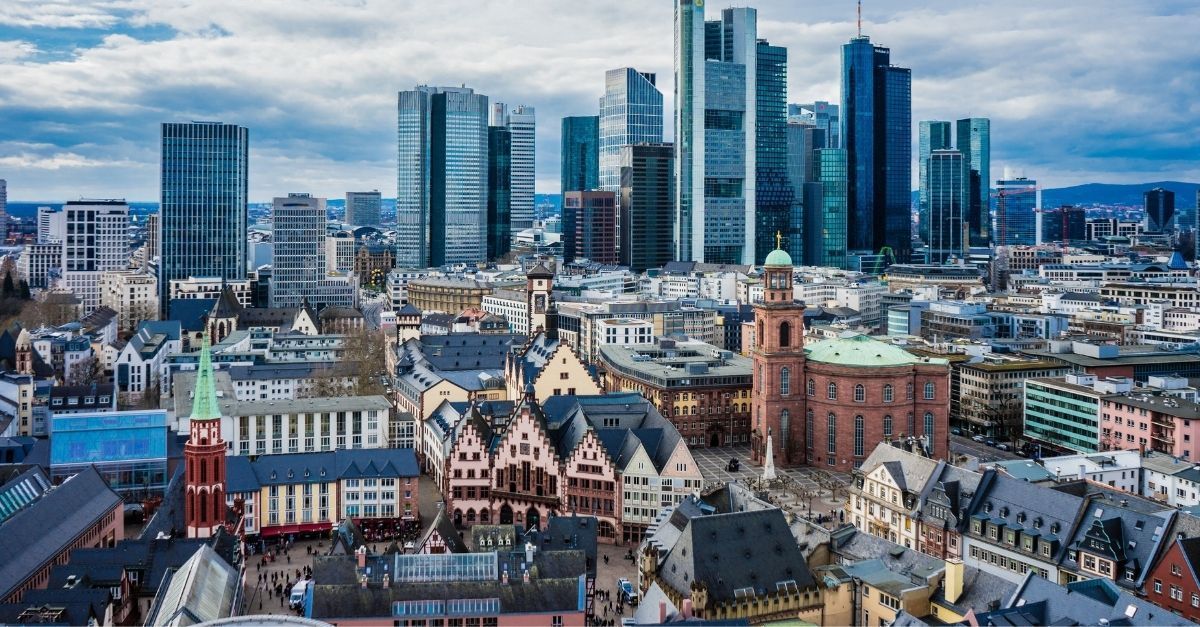Relocating to Germany for Work: Considerations and Steps for Employees
December 20, 2023
By: Iris Barthel
Have you received a job offer from a company in Germany? Congratulations on this exciting milestone! But what's next?
Uncertainty about the required work and residence permits can make an exciting career move to a new country seem daunting and complicated. This blog provides an overview of considerations for those preparing to relocate to Germany for an employment opportunity.
Nationality
Foreign employees generally require a work permit before they can assume gainful employment in Germany. The question of which regulations apply to obtaining such a permit still depends most significantly on the passport of the applicant.
EU citizens can move and work freely within the EU. Thus, they can also enter Germany and immediately start working in the country.
Citizens from certain countries with which Germany has particularly close economic and political ties, the so-called “best friend” countries, also benefit from a specific advantage (Andorra, Australia, Canada, Israel, Japan, Republic of Korea, Monaco, New Zealand, San Marino, the United Kingdom, Northern Ireland and the United States).
Although citizens from these countries need a work and residence permit before they can assume employment in Germany, the requirements are significantly less strict. There are no set requirements regarding qualification, work experience or planned occupation.
In principle, a work permit can be issued for any type of employment, provided that the German labor law regulations, e.g., on minimum wage or working hours, are complied with and the position cannot easily be filled by a local job-seeker. Similar benefits also apply to nationals of the Balkan states (Albania, Bosnia and Herzegovina, Kosovo, Montenegro, Northern Macedonia and Serbia).
For other non-EU citizens, there are clear requirements, particularly concerning qualifications, professional experience and salary, which must be met before a work permit can be issued and employment in Germany can begin.
Process overview
The migration process for obtaining a work permit in Germany essentially consists of three relevant steps. The first step is to apply for the relevant visa for the purpose of employment at the German diplomatic mission abroad (consulate or embassy). The right visa already allows entry to Germany as well as employment. After arriving in Germany, the second step is to register the place of residence, and the third step is to apply for a work and residence permit at the local immigration office.
Step 1: Visa process
Non-EU citizens generally require a Category D visa to enter Germany and stay there long-term (as opposed to a Category C visa, which allows a stay of up to 90 days). A D visa serves as proof that the holder is authorized to enter and reside in a foreign country. It has a relatively short period of validity of a maximum of 12 months.
To obtain a visa, the applicant must make an appointment at the relevant consulate or embassy and submit the required documents (passport, employment contract, diploma, health insurance, etc.). Detailed lists of required documents can be found on the consulate’s websites.
Only citizens of certain countries, such as the United States, Canada or Japan, can enter Germany without a visa and apply directly for a work and residence permit in the country. However, even for this group, there are advantages to applying for a visa at the relevant consulate or embassy. During the visa procedure, the consulate checks whether all requirements for a German work permit are met. If this is the case, a visa will be issued authorizing the holder to enter Germany and start work immediately.
If an application for a work and residence permit is first submitted in Germany and no visa is obtained before, employment is only permitted once the authorities have approved the application. Weeks and months can pass without the employee being able to start work. Obtaining a visa is therefore regularly recommended.
Step 2: Registration of residential address
After arrival in Germany, registration of the residential address is required. If moving into a new home in Germany, it is necessary to register with the relevant town hall within two weeks. When moving again, re-registration is required; when leaving Germany, de-registration is required.
However, registration is only required if a flat is to be occupied for a significant period. If a hotel or temporary accommodation is only to be used for a few weeks, it is possible to wait with the registration until a long-term accommodation has been found.
Step 3: Work and residence permit
After entry and registration, an application for a work and residence permit must be submitted to the responsible immigration office while the visa is still valid. The responsibility of the immigration office is determined by the place of residence. A list of the documents required for the application can be found regularly on the website of the relevant immigration office. Additional documents, such as confirmation of registration or the first pay slips, are regularly requested.
A work and residence permit issued by the immigration office in Germany entitles the holder to stay in Germany for the duration of the employment contract. In the case of an unlimited employment contract, the duration will depend on the permit type, but is regularly issued for four years. An application for an extension must be submitted before the permit expires.
The permit is often initially tied to a specific employer and a specific position. Therefore, if a change of employer or position is planned, the immigration office must be informed of the change or prior authorization must be obtained from the immigration office before the new position can be started.
Which visa/work and residence permit can be considered?
Visa and work and residence permits are issued in Germany for specific purposes, e.g. to study, search for a job, assume gainful employment or reunite with family. While an applicant with a job offer can obtain a permit for employment, accompanying spouses or minor children can obtain a permit for family reunion.
There are several options when applying for a permit for gainful employment. A well-known permit is the EU Blue Card, the granting of which generally requires a recognized university degree, the earning of a minimum salary and a connection between the qualification and the planned field of work.
The German legislator recently passed a new law to facilitate the immigration of skilled workers from non-EU countries, which has reduced the requirements for the Blue Card since 18 November 2023. Among other changes, the required minimum annual gross salary for 2023 was reduced to EUR 43,800 (previously EUR 58,400). The salary threshold for the Blue Card is recalculated each year and will be raised to EUR 45,300 in 2024.
However, there are also positive alternatives to the Blue Card that are not based on a recognized university degree, but, for example, on professional experience.
What are the key requirements for obtaining a work permit?
The essential requirements for the granting of a permit for gainful employment include the following:
- Valid passport
- Employment contract in compliance with German labor law (same salary as a comparable locally hired employee; minimum 20 vacation days, etc.)
- For non-EU citizens who do not fall into the "best friends" category: A recognized qualification that is comparable to a German qualification (You may check to see whether a university degree is recognized as equivalent to a German degree. Check out helpful information on how to check whether vocational training is recognized in Germany.)
-
- Alternatively, a minimum of three-five years of professional experience in the planned field of work, provided that the planned activity requires skills that are typically acquired in a university degree or a qualified vocational training program
- Alternatively, from March 2024: At least two years of professional experience in the planned field of work and qualification recognized in the country in which it was obtained
-
The list is not exhaustive, and there are special regulations for certain professional groups, such as seasonal workers or caregivers for private households with people in need of care, who can obtain a work permit without being highly qualified professionals.
However, it can be seen from the above requirements that the regulations in the area of labour migration are strongly geared towards skilled professionals, with a focus on individuals with recognized qualifications or several years of professional experience.
Looking ahead to 2024
As part of the latest legislative changes, an “Opportunity Card” will come into force in June 2024. This Opportunity Card is of interest to anyone who does not yet have a concrete job offer but would like to come to Germany to look for work. Foreign nationals who achieve at least six points under a new points system can apply for a one-year (renewable) residence permit to seek work. The criteria include qualifications, professional experience, language skills, relation to Germany and age.
Need to know more?
For questions on successfully relocating to Germany, please contact Associate Iris Barthel at [email protected] or direct your inquiry to [email protected].
This blog was published on 20 December 2023, and due to the circumstances, there are frequent changes. To keep up to date with all the latest updates on global immigration, please subscribe to our alerts and follow us on LinkedIn, X, Facebook and Instagram.















